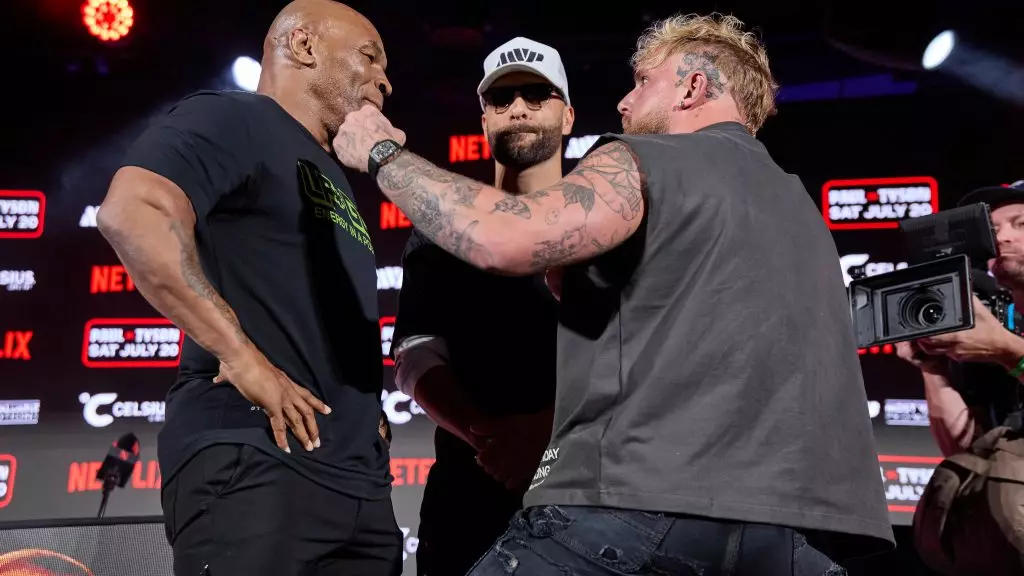In an unexpected twist for the world of boxing, the upcoming fight between Mike Tyson and Jake Paul has generated immense buzz and curiosity. This matchup, featuring a 58-year-old former heavyweight champion and a 27-year-old social media influencer-turned-fighter, stands at the intersection of sports history and contemporary entertainment. Tyson earned his notoriety as the youngest heavyweight champion ever in 1986, decades before Paul was even on this planet, illustrating a striking generational divide. The stakes are high, and anticipation is palpable as fans debate the implications of age, experience, and skill within the squared circle.
When analyzing the combatants, Tyson’s lifetime of experience is undeniable. He has spent the majority of his life in the ring, accumulating knowledge and skills that only time can instill. However, the significant age gap raises questions about Tyson’s physical condition. Despite his historical prowess, concerns linger regarding whether he can compete effectively against a younger opponent like Paul, who has dedicated himself to training and has been involved in the fight game more recently. This clash raises intriguing points about how both youth and experience can dictate the outcome of a match.
As the fight approaches, the betting odds reveal a clear outsider status for Tyson. Major sportsbooks such as BetMGM, FanDuel, and DraftKings have placed Paul as the favorite in this unconventional matchup. The odds, which fluctuate slightly between platforms, indicate that there is a collective belief among oddsmakers that Tyson’s age may impede his ability to win. While some boxing purists may scoff at the idea of a YouTuber commanding legitimate odds, the reality is that Paul has proven himself capable of competing at a professional level, adding layers of complexity to the forthcoming bout.
The event slated for November 15 at AT&T Stadium in Arlington, Texas, is more than just a fight; it is a spectacle that transcends traditional boxing narratives. Tyson returns to the ring not only for personal redemption but to engage with a new generation of boxing fans who may only know him as a cultural icon rather than as a fighter. Meanwhile, Jake Paul aims to solidify his claim as a serious boxer, shedding the label of a mere internet personality. This bout serves as a pivotal point for both fighters, with Paul looking to elevate his career while Tyson seeks affirmation of his legacy.
Fans will have multiple options to witness this extraordinary event from the comfort of their homes. The early preliminaries will stream on platforms like Netflix and YouTube, while the main card will be accessible to anyone with a Netflix subscription. This modern approach reflects a shift in how fights are consumed, reaching audiences far beyond traditional pay-per-view models. The strategic choice of platforms symbolizes the evolving dynamics in sports broadcasting, where accessibility often drives viewer engagement.
Mike Tyson versus Jake Paul is more than just a boxing match; it symbolizes the blending of traditional and modern elements within the sport. As the ring prepares to host this unique confrontation, fans are left to ponder what this fight signifies for the future of boxing. Will Tyson’s experience shine through despite his age, or will Paul’s youthful energy prevail? This matchup could very well set the stage for how the sport navigates the intersection of athletics and entertainment, making for a compelling narrative that extends far beyond the confines of the boxing ring.

